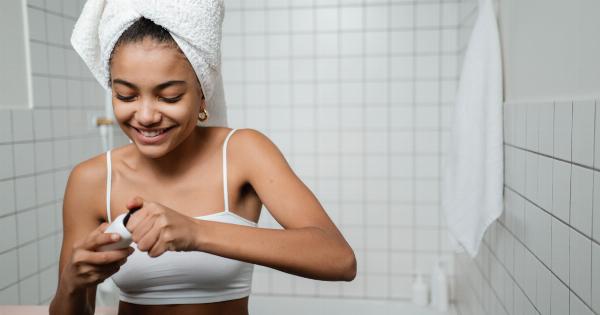Waking up to a face full of pimples can be absolutely frustrating and demoralizing. It seems like no matter what skincare routine we follow or how many products we invest in, those pesky pimples still find a way to ruin our day.
But have you ever wondered why pimples tend to appear overnight? The answer lies in our sleeping habits.
The Link Between Sleep and Skin
Our skin is the largest organ in our body, and it serves as a protective barrier against external irritants and pathogens. While we sleep, our skin goes through a crucial renewal process.
During this time, the body works to repair and regenerate cells, and any imbalance or disruption can manifest as skin imperfections, including pimples.
How Sleeping Habits Impact Our Skin
1. Sleeping on Dirty Pillowcases.
Throughout the day, our pillowcases collect dirt, oil, sweat, and bacteria from our hair and face.
When we sleep on these dirty surfaces night after night, our skin is subjected to the accumulation of these impurities, increasing the likelihood of clogged pores and breakouts.
2. Sleeping with Makeup On.
We’ve all been there – too tired or lazy to wash off our makeup before hitting the hay.
Sleeping with makeup on exposes our skin to a cocktail of chemicals, oils, and bacteria that clog our pores and cause inflammation, leading to pimple formation.
3. Tossing and Turning.
If you tend to toss and turn throughout the night, friction and pressure from the pillowcase can cause irritation and inflammation on the skin’s surface.
Additionally, rubbing your face against the pillow can transfer bacteria and create a breeding ground for pimples.
4. Using Harsh Fabrics.
Some pillowcases are made from materials that can irritate the skin, such as rough cotton or synthetic fabrics. These materials can cause friction and trapping of sweat, leading to acne breakouts.
5. Sleeping in a Non-Optimal Sleeping Position.
The position in which you sleep can also affect the appearance of pimples. Sleeping on your stomach or side can lead to increased contact between your face and the pillowcase, allowing more dirt, bacteria, and oil to transfer onto your skin.
Sleeping on your back, on the other hand, may help reduce the risk of pimple formation.
How to Change Your Sleeping Habits to Prevent Pimples
1. Wash Your Face Before Bed.
Make it a habit to cleanse your face thoroughly before bedtime. Use a gentle cleanser to remove makeup, dirt, and excess oil from your skin. This step helps to keep your pores clear and prepares your skin for the rejuvenation process during sleep.
2. Change Your Pillowcases Regularly.
Invest in several pillowcases and change them at least once a week. Opt for pillowcases made from breathable fabrics like silk or satin, which are less likely to irritate the skin and cause breakouts.
3. Avoid Sleeping with Makeup On.
No matter how tired you may be, always take off your makeup before bed. You can keep makeup remover wipes handy for those nights when you lack the energy for a full skincare routine.
4. Consider Your Sleeping Position.
If you’re prone to pimples, try sleeping on your back to minimize contact between your face and the pillowcase. This position helps reduce the transfer of bacteria, oil, and dirt onto your skin.
5. Opt for Hypoallergenic or Silk Pillowcases.
Hypoallergenic pillowcases are made from materials that are less likely to cause irritation or allergic reactions.
Silk pillowcases, in particular, have added benefits as they reduce friction, preventing creasing and minimizing the transfer of bacteria and oils to the skin.
Other Tips for Clearer Skin
In addition to improving your sleeping habits, there are several other measures you can take to promote clearer skin:.
1. Cleanse your face twice daily with a gentle cleanser to remove impurities and excess oil.
2. Exfoliate regularly to remove dead skin cells and unclog pores.
3. Moisturize your skin to keep it hydrated and protected.
4. Avoid touching your face throughout the day to minimize the transfer of bacteria and oils.
5. Follow a balanced diet rich in fruits, vegetables, and whole grains to support overall skin health.
6. Manage stress levels through practices such as meditation, exercise, or engaging in hobbies you enjoy.
The Result: Waking Up to Beautiful Skin
By making simple changes to your sleeping habits and adopting a consistent skincare routine, you can significantly reduce the chances of waking up to pimples.
Remember, prevention is always better than cure, so take care of your skin before and during sleep to wake up to beautiful, blemish-free skin.































